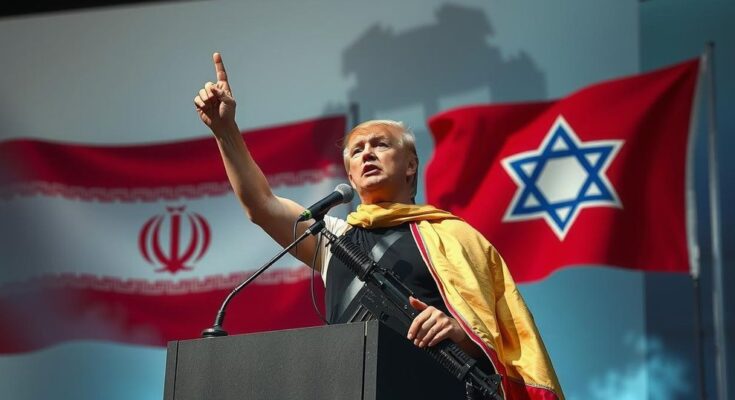Abu Mohammad al-Jolani delivered a significant victory speech at the Umayyad Mosque, emphasizing unity among Sunni Muslims and rejecting Iranian influence in Syria. He addressed both local supporters and international powers, particularly the U.S., signaling his intent to pursue legitimacy and governance reforms. The speech highlighted the importance of actions that would follow his words to ensure HTS’s survival in a shifting political landscape.
Abu Mohammad al-Jolani’s recent victory speech marked a significant moment in his journey from a young al-Qaeda fighter to the leader of Hayat Tahrir al-Sham (HTS), embodying a shift towards sectarian tolerance. Delivering his message at the historic Umayyad Mosque in Damascus, he proclaimed that this victory belongs to the entire Islamic nation, acknowledging the sacrifices of martyrs and the suffering of those oppressed.
In his address, Jolani emphasized a newfound chapter for Syria, signifying a decisive rebuke to Iranian influence in the region, particularly as it relates to their support for proxy groups. By explicitly singling out Iran, he signaled the end of their operations safely within Syria’s borders, framing this shift as integral to the triumph of the Syrian people over Assad’s regime, which is characterized by sectarianism and corruption.
Jolani’s calculated approach serves not only as a message to domestic supporters but also to international powers, notably the United States and Israel, from whom he hinted he seeks understanding and support. His choice of broadcasting through CNN indicates an acute awareness of the global narrative surrounding Syria, as he attempts to distance his faction from the extremism associated with his past.
Furthermore, he addressed regional concerns about drug trafficking, particularly in reference to the Captagon crisis under Assad’s rule, promising a renewed focus on governance and integrity in a Syria he described as being “purified.” Ultimately, Jolani’s speech at the Umayyad Mosque was a strategic declaration of both arrival and the importance of future actions to ensure HTS’s survival and legitimacy in an evolving Syrian landscape.
The context surrounding Abu Mohammad al-Jolani’s speech lies in the complex Syrian civil war, where various factions vie for power. As the leader of Hayat Tahrir al-Sham, his ascent is emblematic of a transformation in militant Islamic discourse, reflecting an emphasis on unity among Sunni Muslims against the backdrop of sectarian strife instigated by the Assad regime’s alignment with Iran. The geopolitical implications of his message extend beyond local dissension; they resonate with broader international dynamics involving the United States and Israel, both of whom have vested interests in Syria’s future.
In conclusion, Abu Mohammad al-Jolani’s victory speech was a multifaceted statement aimed at multiple audiences, including domestic supporters, Iranian authorities, and international powers like the United States. His emphasis on sectarian unity and the rejection of external influence indicates a strategic repositioning of HTS within the Syrian landscape and signifies Jolani’s intent to align with global sentiments while addressing pressing regional issues such as drug trafficking. Ultimately, his future success depends upon actions that follow his rhetoric, highlighting the precarious balance between power and perception in contemporary Syria.
Original Source: www.cnn.com




